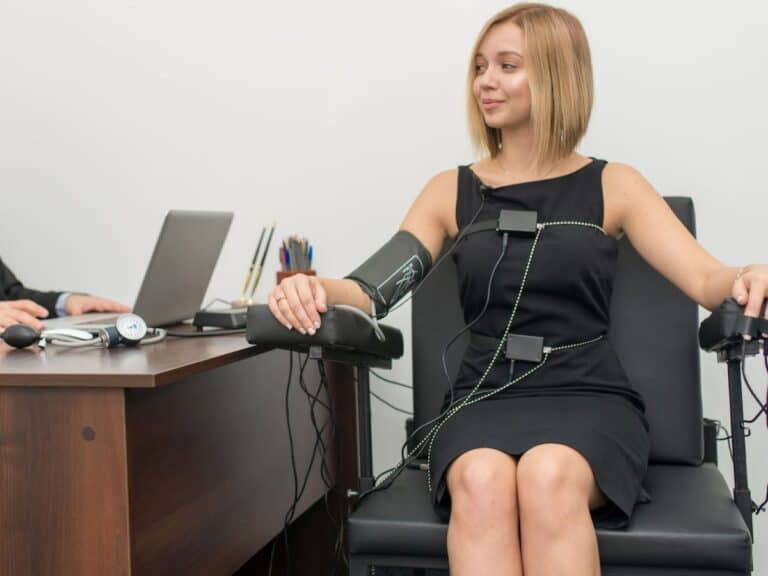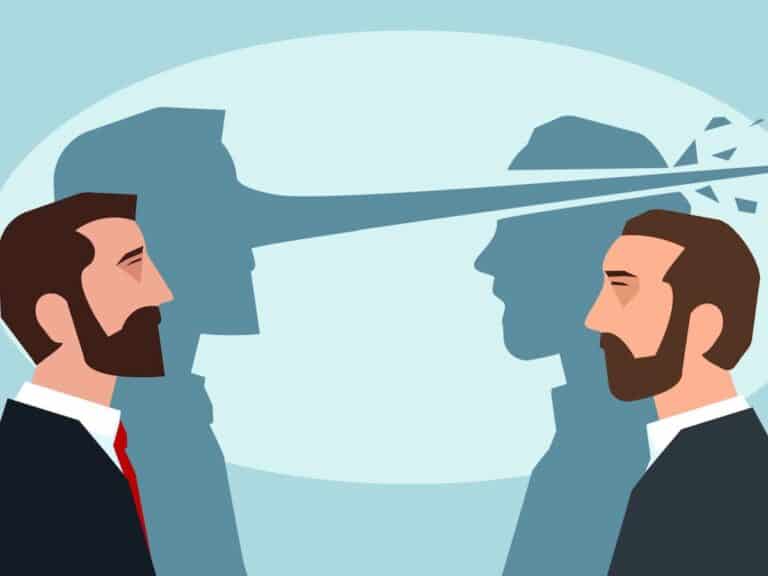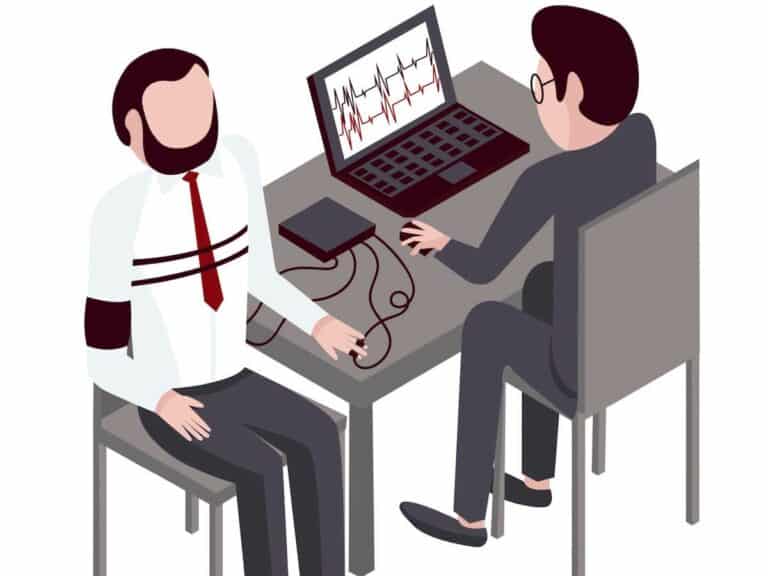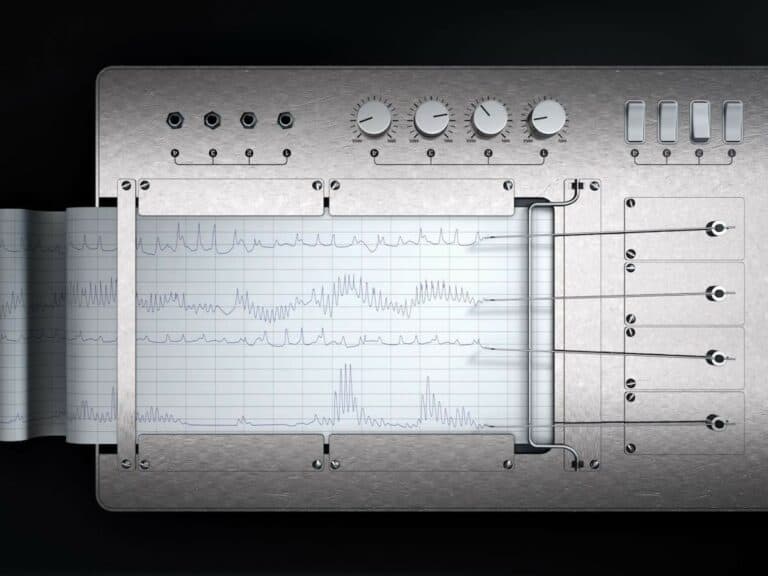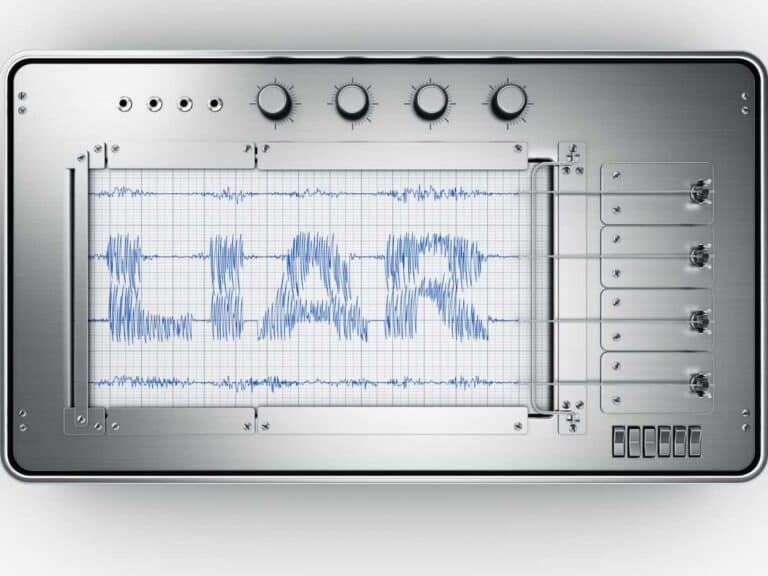Polygraph: 11 Advantages and 11 Disadvantages
It’s not just on TV shows and in movies with a forensics crime drama theme where a polygraph test is performed — it’s also being conducted by real-life law enforcers and crime investigators constantly. As a matter of fact, some private companies and government agencies use a lie detector test, too, in screening applicants.
What’s really nice about a polygraph is that it can help in uncovering the truth when there’s an unsolved crime or in finding the best possible candidate when there’s a job vacancy.
Unfortunately, it’s kind of far from being the perfect investigative or employment screening companion.
In this post, I will talk about both the advantages and disadvantages of a polygraph examination. Knowing what they are can help you prepare so much better for a life-changing lie detector test or a promising career in polygraphy.
11 Advantages of Polygraph Testing
1. High accuracy rate
Depending on who you ask, a polygraph test is a highly accurate truth-telling technique. Proponents say that its accuracy rate is anywhere between 80% and 90%. As a matter of fact, based on some field studies on the reliability and validity of a lie detector exam, it is estimated to be 95% accurate.
Most critics, on the other hand, say that the accuracy rate of a polygraph test is only about 70%. On the other hand, a former polygraph examiner sets the accuracy of the test at 50% at most.
Polygraph exams, despite this, are still widely used in the US and other countries for a variety of purposes.
2. Accessible
As of this writing, the American Polygraph Association (APA), which is said to be the leading professional polygraph organization in the US and all over the planet, too, has over 2,800 experienced polygraph examiners. So, in other words, there are numerous lie detector experts available for companies and private individuals.
Computerized polygraph instruments are the ones used by the vast majority of polygraphers in the country.
Some of the perks of using a computerized machine include ability to conduct more exams and clearer results generated. It’s also less intimidating for examinees as there are no moving parts such as in an analog version.
3. Low cost due to competition
According to basic economic theory, lower prices result from several different firms competing for the same customers. And due to the fact that there are lots of individuals who conduct lie detector examinations in the US, it’s not that difficult to come across polygraphers with very reasonable asking prices.
These days, a polygraph exam can cost as low as $200. However, it can also be as high as $2,000. It will all depend on factors such as the purpose of the lie detector test, location of the testing center and experience of the examiner.
Take your time when choosing a polygraph expert in your area to have the most reliable test.
4. Simple and painless
It’s true that a polygraph machine comes integrated with an assortment of medical and diagnostic sensors. Some of them include a blood pressure cuff, galvanometers and pneumatic tubes. They are integral components of a lie detector test because they are the ones that enable the instrument to record physiologic processes.
Despite playing critical roles, these sensors are easy to attach to and remove from the examinee’s body.
There are no needles and probes — a polygraph test is a non-invasive and painless procedure. The only thing you will feel is the blood pressure cuff, which is inflated to about 200 mmHg during the test.
5. Easy to understand how it works
One of the things that can make undergoing a lie detector test scary for some individuals is that they don’t know how the machine used can detect truthfulness or deception. Does it have psychic powers? Does it possess instinctual consciousness? Does it have a camera that judges an individual based on his or her looks?
Before the actual question and answer portion of the polygraph, or the pre-test phase, the examiner will introduce the subject to the test itself as well as the instrument used — what its various sensors are, how it works, etc.
As a matter of fact, the pre-test phase will consume most of your time at the testing center.
6. Better assessment of job candidates
There’s what’s called the Employee Polygraph Protection Act (EPPA) in the US. Simply put, it prohibits most private employers from using lie detector tests, such as for pre-employment screening purposes. But the EPPA does not cover some private companies and all federal, state and local government agencies.
So, in other words, chances are that you will be subjected to a polygraph examination if you are applying for a job that involves things like loads of money, prescription drugs, controlled substances, and health and safety.
Using a lie detector test as a part of the pre-employment screening allows some private companies and government agencies to hire only the most reputable and reliable candidates.
7. Have been around for 100 years
A polygraph test suitable for utilization in criminal investigations was invented in 1921 by John Augustus Larson, who was both a police officer of the Berkeley Police Department in Berkeley, California and a medical student at the University of California. But a more primitive form of it came into being earlier in 1915.
Such is credited to Dr. William Moulton Marston, who was an American lawyer and a psychologist.
In any case, since the lie detector test showed up, it’s considered the most famous among numerous techniques that have been used for detecting deception, especially in law enforcement and intelligence communities.
8. Versatile
Because of forensics crime drama TV shows and movies, a polygraph test is associated by many with criminal investigations. Not a lot of people are aware of the fact that a lie detector test has many other applications, too.
As earlier mentioned, some private companies and federal, state and local government agencies use polygraph testing for pre-employment screening purposes in order to be able to hire only the most suited for the job. A lie detector exam is also sought by some couples when one is accused of cheating and infidelity.
Parties can be more fun and exciting with a home lie detector testing kit designed for entertainment purposes.
9. Narrow down search for criminals
According to a manufacturer of verification instruments, a polygraph machine costs about $6,400. Based on this price tag, it’s apparent that a lie detector test doesn’t come cheap.
But the good news is that employing polygraphy can save not only money but also time. This is especially true among law enforcers and criminal investigators since it can help in narrowing down the search for perpetrators — if somebody who took a lie detector test showed signs of deception, it could prompt investigation of the individual further.
The responses of a suspect throughout the polygraph test can also be used as official statements.
10. Questions are yes or no types
Something that can make a lie detector test absolutely nerve-racking is that you have no idea whatsoever of what questions the examiner will throw your way. Will you fail the examination if you fail to come up with an elaborate answer right away or stutter while explaining your side of the story?
Well, there’s no need to worry about this matter as there’s no elaboration or explanation needed.
It’s for the fact that all questions asked during a lie detector test are the kinds that are answerable with either a yes or a no. That’s right — after understanding the question, all you have to do is answer yes or no.
11. Examiners are trained individuals
Not everyone can conduct a lie detector test. In some states including Alabama, Indiana, Massachusetts, Michigan, Nevada, Oklahoma, South Carolina, Tennessee, Texas and Utah, a polygraph examiner must have a license. And for them to be eligible to apply for a license, they must have attended an accredited polygraph school.
A polygraph training costs about $7,500. After completing the program, usually, graduates must undergo an internship. Different states have different licensing requirements for polygraphers.
Before you give the examiner the go signal, check that he or she underwent training and has enough experience.
11 Disadvantages of Polygraph Testing
1. Not infallible
It was mentioned earlier that a polygraph test has a high accuracy rate — up to 80% to 90% if you ask the truth-telling method’s proponents. Because it’s not 100% accurate, it’s something that’s not infallible.
Just like any other engineered equipment, a lie detector instrument is prone to machine error. It’s susceptible to both misuse and abuse, too. Then there’s also the possibility of human error being committed during the analysis of the data recorded throughout the polygraph examination.
It’s exactly due to this why the result can sometimes be either a false positive or a false negative.
2. Time-consuming
During the polygraph test, the examinee has to answer around 10 questions. Only around 3 questions are the so-called relevant questions — or questions specific to the crime being investigated. Although there are only a few questions to answer, each one of them answerable with a yes or no, a polygraph test can take a lot of time to complete.
A lie detector exam can be anywhere from 2 to 3 hours long.
Some tests can be a little shorter, while others can be a little longer. It will all depend on the reason for the polygraph examination and the examiner’s preferred testing style.
3. Physical cues are not recorded
There are many different sensors integrated into a polygraph machine. This allows the instrument to record all sorts of physiological processes, from blood pressure, heart rate to sweating, which will then allow the administrator of the examination to determine whether or not there’s deception.
But non-verbal cues such as eye movements, eye contact, facial expressions, hand gestures and posture, which a polygraph machine does not monitor, can also provide clues to truth and dishonesty.
If the examiner isn’t observant and detail-oriented enough, it’s possible for the wrong diagnosis to be given.
4. Can create stress and anxiety
What makes a lie detector machine work is that it’s capable of detecting an increase in stress and anxiety levels, with the help of its various sensors, each time the subject is attempting to conceal the truth.
For many examinees, however, being strapped to the instrument alone can be stressful and terrifying. Although it’s true that the pre-test phase is designed to enlighten an examinee with regard to the test and the polygraph machine, one’s apprehension may not fully go away. And this is a bad thing because it can affect the result.
A lie detector test can be so stressful that people with sensitive medical conditions are not allowed to take it.
5. Diminished reputation
It’s not just in forensics crime drama TV shows and movies that one can spot a polygraph machine or an ongoing lie detector test. These days, it’s not uncommon for polygraphy to be seen in reality shows, which can make some individuals think that it’s nothing to be taken seriously.
What you see on TV is not what happens at testing centers. First and foremost, they ask ridiculous questions that are not asked by polygraph examiners in real life — the goal, after all, is to get reactions from the audience and drive up the ratings. And there’s also the fact that these TV shows are filmed in sets, which isn’t ideal for a lie detector test.
In a few, we will talk about taking a polygraph exam in a controlled environment — so keep reading!
6. No admissibility in some jurisdictions
A polygraph examiner is usually just an email or a phone call away. But the accessibility of a lie detector test is pretty much useless, depending on where you live. That’s because it’s something that has no admissibility in certain jurisdictions or states — a court judge will not accept it as a piece of evidence.
Some of the states where a polygraph exam isn’t admissible even if both parties agree to it, which is a condition where the test is admissible, include Illinois, New York, Pennsylvania, Texas and Washington DC.
And where it has admissibility, a lie detector test is commonly used in civil cases rather than criminal cases.
7. Illegal in some instances
Earlier, we talked about the EPPA — the act that prohibits most private employers from using lie detector tests. This is true whether it’s for pre-employment screening purposes or during the course of employment.
The EPPA itself says that employers generally may not require or request any of their employees or job applicants to take a polygraph test. Similarly, they may not discharge, discipline or discriminate against any employee or job applicant for refusing to take a lie detector examination.
However, private firms may ask employees who are reasonably suspected of involvement in a workplace incident that resulted in an injury or a specific economic loss to the employer to take a polygraph exam.
8. Can produce errors
Not everyone who fails a lie detector test is guilty. Similarly, not everyone who passes it is innocent.
This is another disadvantage of a polygraph exam: it can sometimes produce errors. One type of error is what’s called a false positive, where a truthful person is reported as deceitful. A false negative is another, where a deceitful person is reported as truthful. In any case, an error is what makes a polygraph test not 100% accurate.
At times, a report can also be inconclusive — the polygraph examiner failed to make a definite diagnosis.
9. Not suitable for everyone
Certain medical conditions can keep an individual from undergoing a lie detector examination. That’s because the result will only be either inconclusive or an error, or the person’s health and safety can be put at risk.
Some of the things that can cause a polygraph to be canceled are serious heart conditions, recent heart attacks or strokes, respiratory illnesses, anxiety, PTSD and depression. Pregnant women are also prohibited from taking the test, unless they have a written permit from their doctors. Anyone who is sick or exhausted is not allowed to take it, too.
Those who are taking certain medications that can affect some of the body’s physiological and psychological processes, such as the heart rate and mental alertness, are not suited to have a polygraph exam.
And by the way, whether you are a suspect or have been arrested, you can always say no to a lie detector test.
10. Requires a controlled environment
Today’s computerized polygraph machines are more compact and portable than their analog counterparts.
It doesn’t mean, however, that just because polygraph examiners can easily take their equipment with them doesn’t mean that they can conduct a lie detector test anywhere. To obtain the most accurate and reliable result possible, the examination should be administered where it’s quiet and there are no stimuli and distractions.
11. Subject to countermeasures
Examinees can deliberately do a variety of things in order to try to defeat or distort a lie detector test. They are what polygraph experts refer to as countermeasures.
Knowing some of the right countermeasures and doing them properly, too, can make it easy for a deceitful person to pass a lie detector exam. Some examples of countermeasures include biting the tongue, getting stressed when answering irrelevant questions, and relaxing when answering control and relevant questions.
But be warned: polygraph examiners are well-aware of the various countermeasures examinees attempt to pull off!


